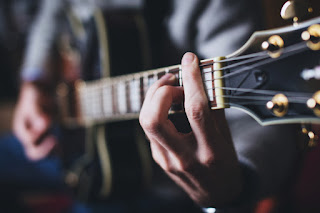Motivation I
Parents often ask me how they might better motivate their children to become the best musicians they can be. For musicians of all ages, meeting needs for autonomy, competence, and relatedness increases motivation.
Autonomy is the need to experience activities as a personal choice. That is: “I play guitar because I really enjoy it.”
Competence is the need to feel effective and achieve outcomes that are meaningful to you. Competence also has to do with social influence. For example: “My girlfriend loved the song I wrote for her.”
Relatedness is the need to feel close to, connected to, and cared for by important others. Listen out for: “Our band is so cool, we rock!”
All nascent musicians must possess at least some self-motivation to seek out the challenges and experiences necessary to play their instrument. But it is when parents and teachers help boost autonomy, competence and relatedness that the highest quality motivation is achieved.
These needs are innate in all musicians, but the strength of these needs may vary from person to person. When these needs are met, musicians persist through adversity in practice and performance. They display better psychological health and perform better in the practice room, at lessons and on stage.
When the opposite happens and these needs are frustrated — for example when a musician feels a lack of choice in their repertoire or they experience repeated failure or attention is called to those failures, or if they feel rejected and isolated—then burnout and negative emotions, as well as sub-par performance, inevitably occur.
Autonomy. Competence. Relatedness. These are the three pillars of motivation and thus success. Look to boost these areas in your own or your child’s music and prepare to be delighted at the results.
Autonomy is the need to experience activities as a personal choice. That is: “I play guitar because I really enjoy it.”
Competence is the need to feel effective and achieve outcomes that are meaningful to you. Competence also has to do with social influence. For example: “My girlfriend loved the song I wrote for her.”
Relatedness is the need to feel close to, connected to, and cared for by important others. Listen out for: “Our band is so cool, we rock!”
All nascent musicians must possess at least some self-motivation to seek out the challenges and experiences necessary to play their instrument. But it is when parents and teachers help boost autonomy, competence and relatedness that the highest quality motivation is achieved.
These needs are innate in all musicians, but the strength of these needs may vary from person to person. When these needs are met, musicians persist through adversity in practice and performance. They display better psychological health and perform better in the practice room, at lessons and on stage.
When the opposite happens and these needs are frustrated — for example when a musician feels a lack of choice in their repertoire or they experience repeated failure or attention is called to those failures, or if they feel rejected and isolated—then burnout and negative emotions, as well as sub-par performance, inevitably occur.
Autonomy. Competence. Relatedness. These are the three pillars of motivation and thus success. Look to boost these areas in your own or your child’s music and prepare to be delighted at the results.



Comments
Post a Comment